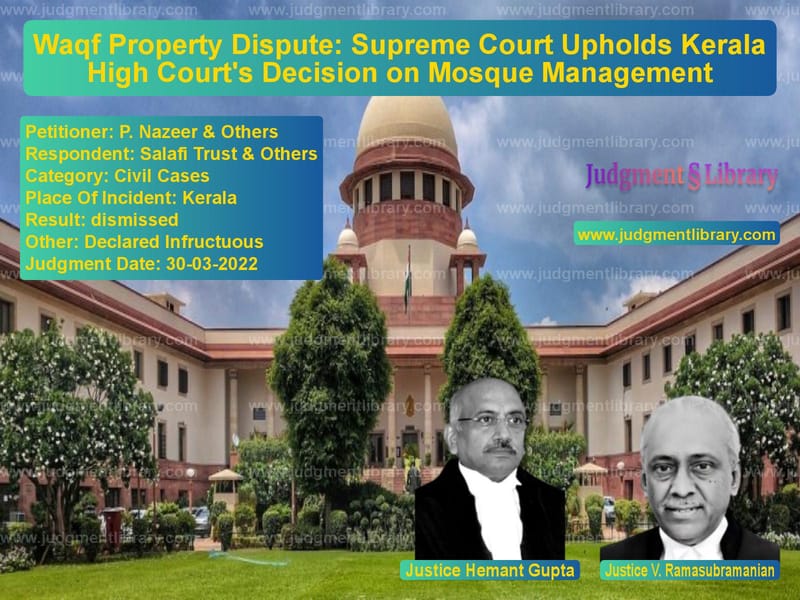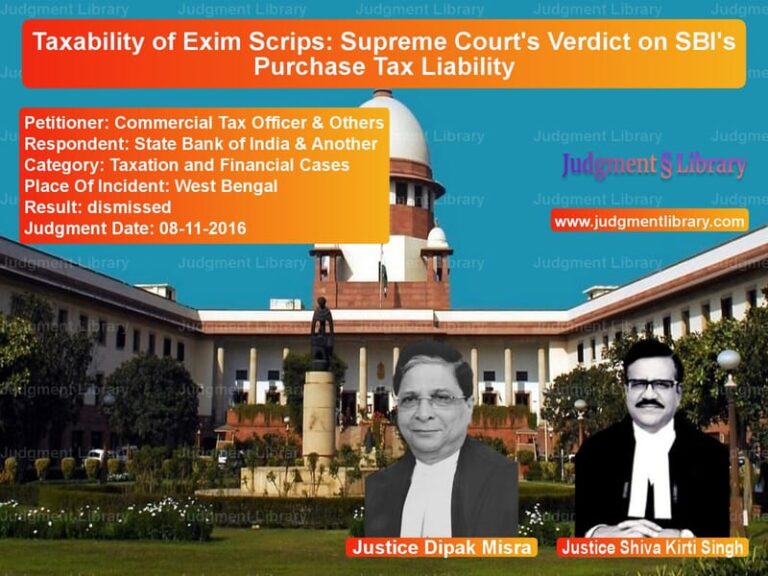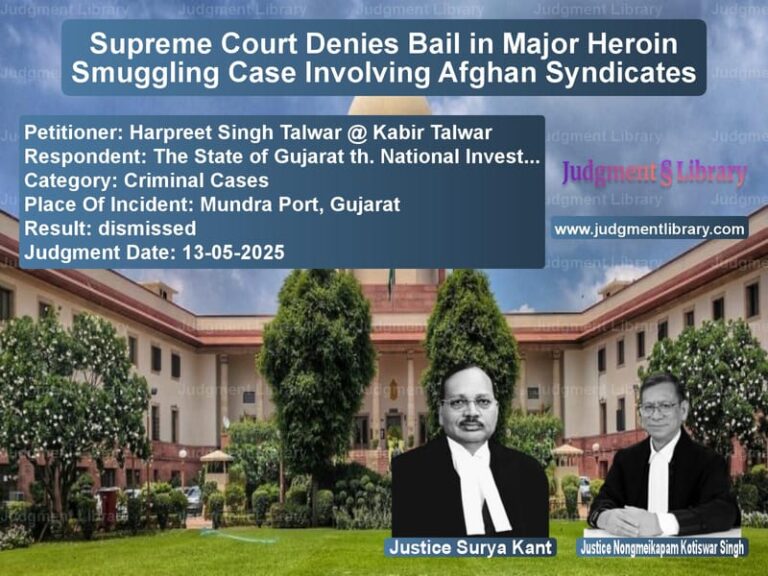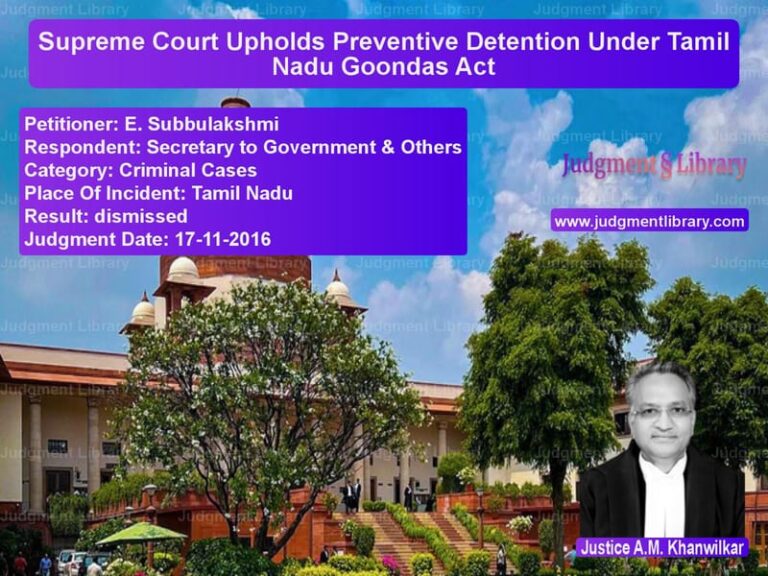Waqf Property Dispute: Supreme Court Upholds Kerala High Court’s Decision on Mosque Management
The case of P. Nazeer & Others vs. Salafi Trust & Others revolves around a dispute concerning the management and administration of a mosque and its associated properties in Kerala. The conflict involved two parties—Salafi Juma Masjid Mahal Committee and Salafi Trust—each claiming the right to manage the mosque. The Supreme Court upheld the Kerala High Court’s decision, affirming the right of the Salafi Trust to administer the mosque.
Background of the Case
The dispute traces its origins to two cross-suits filed before the Waqf Tribunal, Kollam. The Mahal Committee sought a declaration that it was the rightful manager of the mosque, while the Salafi Trust claimed management rights. The Waqf Tribunal ruled in favor of the Mahal Committee, granting them an injunction against interference by the Trust. However, the Kerala High Court reversed this decision, ruling in favor of the Salafi Trust.
Dissatisfied with the High Court’s ruling, the Mahal Committee filed an appeal before the Supreme Court.
Arguments of the Petitioner (Mahal Committee)
The Mahal Committee, represented by Senior Counsel R. Basant, argued:
- The mosque was a public waqf registered with the Kerala Waqf Board.
- Though the land was originally given by the Salafi Trust, the Mahal Committee had been managing it for years.
- According to Islamic law, the person or group managing a waqf is considered its Mutawalli and has legal rights over administration.
- The Waqf Board had conducted an inquiry and found that the Mahal Committee was managing the mosque.
- The Kerala High Court overstepped its jurisdiction by overturning the Waqf Tribunal’s findings.
Arguments of the Respondent (Salafi Trust)
The Salafi Trust, represented by Senior Advocate V. Giri, countered:
- The mosque was built on land owned by the Trust, making it the rightful managing authority.
- The Waqf Board had issued a certificate of registration in favor of the Salafi Trust.
- The Mahal Committee was not a registered legal entity and therefore had no standing to file the suit.
- The High Court correctly applied the law and exercised its jurisdiction within the provisions of the Waqf Act.
Supreme Court’s Observations
The Supreme Court, comprising Justices Hemant Gupta and V. Ramasubramanian, made key observations:
- The Mahal Committee had failed to prove its legal standing as a registered entity.
- The Waqf Tribunal had wrongfully ignored the Waqf Board’s certificate of registration in favor of the Salafi Trust.
- The High Court had correctly determined that the Salafi Trust was the legal mutawalli (caretaker) of the mosque.
- The High Court did not exceed its jurisdiction but acted within the provisions of Section 83(9) of the Waqf Act.
The Court emphasized:
“The High Court exercised its revisional jurisdiction correctly and justly. The Salafi Trust’s management of the mosque is lawful and in accordance with the Waqf Act.”
Supreme Court’s Verdict
On March 30, 2022, the Supreme Court ruled:
- The appeals filed by the Mahal Committee were dismissed.
- The Kerala High Court’s ruling in favor of the Salafi Trust was upheld.
- The Salafi Trust would continue to manage the mosque and its associated properties.
- The judgment clarified the jurisdiction of the Waqf Tribunal and the scope of the High Court’s revisional powers.
The Court concluded:
“The management and administration of the mosque lawfully vests with the Salafi Trust. The appeals are accordingly dismissed.”
Conclusion
The Supreme Court’s ruling establishes key legal principles:
- Waqf Board certification is authoritative: Registration under the Waqf Act is a strong factor in determining management rights.
- Legal standing is crucial: Organizations must be properly registered to bring claims regarding waqf properties.
- Judicial review in waqf disputes: High Courts have revisional jurisdiction over Waqf Tribunal rulings.
- Property ownership and management: Simply managing a waqf does not confer permanent legal rights unless supported by law.
The Supreme Court’s decision clarifies the legal framework governing waqf properties and prevents unauthorized claims over religious institutions.
Petitioner Name: P. Nazeer & Others.Respondent Name: Salafi Trust & Others.Judgment By: Justice Hemant Gupta, Justice V. Ramasubramanian.Place Of Incident: Kerala.Judgment Date: 30-03-2022.
Don’t miss out on the full details! Download the complete judgment in PDF format below and gain valuable insights instantly!
Download Judgment: p.-nazeer-&-others-vs-salafi-trust-&-other-supreme-court-of-india-judgment-dated-30-03-2022.pdf
Directly Download Judgment: Directly download this Judgment
See all petitions in Property Disputes
See all petitions in Succession and Wills
See all petitions in Specific Performance
See all petitions in Judgment by Hemant Gupta
See all petitions in Judgment by V. Ramasubramanian
See all petitions in dismissed
See all petitions in Declared Infructuous
See all petitions in supreme court of India judgments March 2022
See all petitions in 2022 judgments
See all posts in Civil Cases Category
See all allowed petitions in Civil Cases Category
See all Dismissed petitions in Civil Cases Category
See all partially allowed petitions in Civil Cases Category







